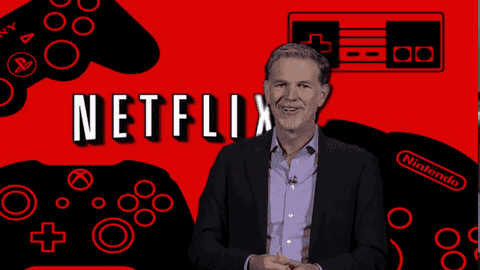Netflix has had some ups and downs with respect to its subscribers. Early this year, the streaming platform recently lost millions of subscribers. However, in the third quarter of this year, it regained 2.41 million subscribers. This is more than double Wall Street’s expectations. Much of the company’s growth comes from the Asia-Pacific region. Netflix will now bring some policies which it believes will improve its performance and finances. Netflix has confirmed changes in the charges when users share their accounts. Once you share your account passwords with others outside the family, the company will charge users additional fees.
The streaming platform claims that it will begin charging for account sharing in early 2023. Also, such fees will be added to billing details in the form of “additional members”. However, the company did not disclose how it would charge for sharing accounts with others.
Netflix Q3 financial report for fiscal 2022
The American video-streaming giant announced its third-quarter financial report for fiscal 2022 in the middle of this month. According to the financial report, the company’s third-quarter revenue was $7.926 billion. This is an increase of 5.9% compared with $7.483 billion in the same period last year. The company’s net profit was $1.398 billion. This is a decrease of 3.5% relative to $1.449 billion in the same period last year. Its earnings were $3.10 but a year earlier, it had $3.19.
Netflix revealed on previous earnings calls that it had lost some subscribers and faced significant losses. However, it revealed in its most recent quarterly earnings call that it would charge if users share account passwords with anybody outside their household. The new charge will be an additional membership fee. The new rules will take effect in 2023.
“Finally, we have come up with a thoughtful approach to monetizing account sharing. We will roll out this approach broadly in early 2023. After listening to consumer feedback, we will offer these 5 products without including China and Russia. Users can transfer their Netflix material to their own accounts, and sharers can manage their devices more easily. They can create sub-accounts (“extra members” if they want to pay for family or friends). In countries where our ad-supported plans are less expensive, we expect the profile transfer business to be particularly popular.”
It is worth mentioning that Netflix already reveals in March 2022 that it would crack down on “illegal sharing” behaviour. , when the company said it hoped that exploiters would stop sharing passwords.
Although Netflix has not disclosed its charging plan, according to the previous test plan in some Latin American countries, the Latin American country charges $2.99, or $12 per month one-fourth of the subscription fee. Earlier this month, Netflix also announced that it will launch ad-supported subscription plans in 12 countries starting next month. The countries include the US, UK, Australia, Brazil, France, Germany, Italy, Japan and South Korea. The subscription plan starts at $6.99.
Google and Netflix account for one-third of South Korea’s traffic
South Korea’s parliament heatedly debated a legislative proposal that would require global content providers such as Netflix and Alphabet’s Google to pay for their networks. It is similar to measures tried by some countries in Europe. These countries want the European Commission to pass legislation to ensure that big tech companies partly fund telecom infrastructure. This is coming amid a surge in video streaming and other data usage. According to Reuters, South Korea has proposed various versions of the legislation. It is hoped that the companies will pay “fair” prices. The hearing is expected to conclude soon. However, the proposal is still some way from entering the next stage of the legislative process.
“Google and Netflix account for more than one-third of domestic traffic… International businesses should consider this more aggressively.” Others disagreed, saying imposing fees on big tech companies could mean they end up passing on to users, thereby weakening the content creation space of Koreans.
“It has the potential to lead to the collapse of domestic content providers while trying to protect a small number of domestic Internet service providers,” said Jung Chung-Rae, chairman of a South Korean parliamentary committee overseeing the issue. Google’s YouTube campaigned against the bill. There is a current campaign against the bill. So far more than 250,000 people have signed the petition against it.
“It is necessary to deeply review how the business operates,” Google Korea director Kyoung Hoon Kim told lawmakers, referring to what would happen if such legislation were introduced.
Liz Chung, director of Netflix Korea, said her company was looking for ways to handle the surge in traffic. “We are developing a number of technical measures to effectively utilize the network and respond appropriately to traffic growth.”
Case in court
South Korean internet provider, SK has gone to court to get Big Tech companies to pay. SK declined to comment. “(The legislation) may cause a series of consequences such as content providers passing on costs to end users,” said Kim Hyun-Kyung, a professor at Seoul Institute of Technology.
European regulators are preparing Google, Meta and Netflix to bear some of the telecom network costs. This plan is currently welcomed by large telecom operators. However, some small operators have also warned that it will distort the telecom market, and harm competition.
YouTube has 41.8 million active users in South Korea, out of a total of 51.6 million South Korean users, according to data provider Mobile Index. They spent a total of 1.38 billion hours on YouTube in September. Sweden’s Ericsson said in a June report that global mobile data traffic reached 67 exabytes per month by the end of 2021 and is expected to reach 282 exabytes by 2027. Video traffic accounts for about 69% of traffic and is expected to rise to 79% by 2027.
Follow Gizchina.com on Google News for news and updates in the technology sector.
